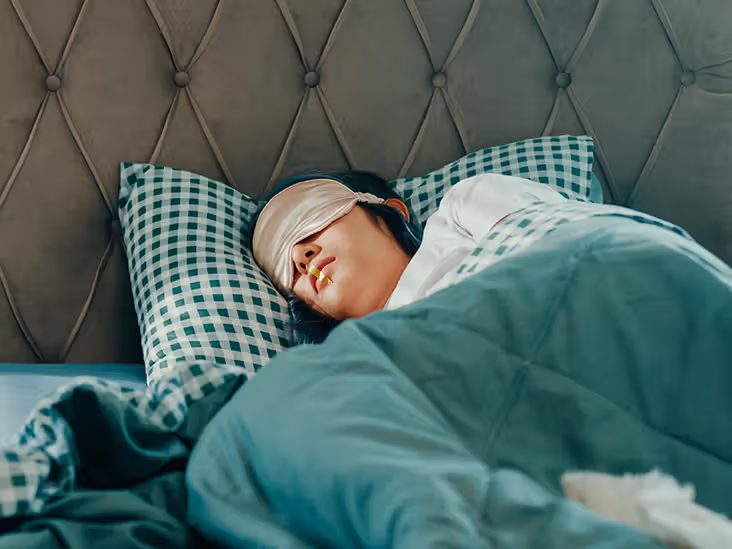The Sleep Blueprint for High Achievers: Why Elite Performers Prioritize Rest

Sleep is the Secret Weapon of High-Performing Executives
Behind the successful 1% high-performing entrepreneur or corporate leader lies a habit they rarely compromise: quality sleep. While hustle culture has long glorified late nights and early mornings, science paints a clearer—and healthier—picture. Sleep isn’t a luxury. It’s a biological necessity, especially for those making high-stakes decisions, managing large teams, and striving for sustained peak performance. According to our data, nearly 40% of high-achieving executives are experiencing sleep-related health issues. That’s 10% higher than national norms, and we believe that it’s tied to the high-stress, busy lifestyle environments business leaders are typically associated with. In this article, we will do a deep dive into why this matters, and more importantly, what you can do about it tonight to change your healthspan.
Why It Matters: The Science of Sleep and Chronic Disease
Before diving into a sleep routine, it’s essential to understand the “why.” The health consequences of sleep deprivation are not minor—they’re life-altering.
Cardiovascular Disease: Poor sleep increases blood pressure, triggers inflammation, and disrupts heart rate variability—all contributors to heart attacks and strokes. One study in the European Heart Journal found that people who sleep less than 6 hours per night had a 20% higher risk of heart disease.
Type 2 Diabetes: Sleep loss impairs insulin sensitivity and glucose metabolism. The American Diabetes Association notes that chronic sleep restriction is a recognized risk factor for developing type 2 diabetes.
Obesity: Inadequate sleep alters hunger hormones—ghrelin and leptin—leading to increased appetite and cravings, particularly for high-calorie foods. The Nurses’ Health Study showed that women who slept five hours or less per night were 15% more likely to become obese.
Alzheimer’s Disease: Sleep is when the brain clears amyloid-beta, a neurotoxic waste product linked to Alzheimer’s. Chronic sleep deprivation accelerates cognitive decline and increases dementia risk, according to research from the NIH and Alzheimer’s Association.
Mental Health Disorders: Poor sleep is both a cause and a consequence of depression and anxiety. Sleep disturbances increase the risk of developing mood disorders and exacerbate existing conditions.
Immune Dysfunction: Sleep helps regulate immune cell production and inflammatory cytokines. Even one night of poor sleep can impair immune function, making you more vulnerable to infections and slower to recover.
The Bottom Line: Optimizing your sleep is one of the simplest, most impactful strategies for disease prevention, cognitive sharpness, and emotional resilience. It’s the foundation upon which all other health and performance habits are built.
The Data Behind the Dream
Executives in the top 1% of performance metrics report getting between 7.5 to 9 hours of sleep per night. This parallels the sleep patterns of elite athletes, including NBA players, many of whom now use wearable sleep technology to track and optimize their recovery cycles. Teams like the Golden State Warriors and San Antonio Spurs have implemented sleep coaching as part of their training protocols. The message is clear: whether on the court or in the boardroom, sleep is performance-enhancing.
According to the CDC, over 35% of American adults sleep less than 7 hours per night—increasing their risk of obesity, diabetes, heart disease, stroke, and depression. Chronic sleep deprivation impairs memory, decision-making, emotional regulation, and even immune function.
How To Get a Better Night’s Rest: The Executive Sleep Protocol
Day 1: Eliminate Screen Time 60 Minutes Before Bed
Why: Blue light from phones, TVs, and computers suppresses melatonin, the hormone that signals your brain it’s time to sleep.
Tip: Replace screens with a relaxing routine—reading, stretching, or just talking to your spouse.
Day 2: Establish a Consistent ‘7-day’ Bedtime and Wake-Up Time
Why: A regular sleep schedule anchors your circadian rhythm, leading to deeper, more restorative sleep.
Tip: Stick to this schedule even on weekends to avoid social jet lag or a case of the Mondays. This sounds counterintuitive, but sleeping in on weekends can give you worse sleep quality and leave you feeling more tired.
Day 3: Introduce a Sleep Monitoring Device
Why: Use tools like wearable devices or a sleep tracking pad, which offer insights into your sleep quality, duration, and recovery patterns.
Tip: Use this data to track trends and adjust your routine.
Day 4: Prioritize 30 Minutes of Daily Physical Activity
Why: Moderate exercise enhances sleep quality, especially if done earlier in the day.
Tip: Even a brisk walk counts. Avoid intense workouts close to bedtime.
Day 5: Create a Morning Ritual
Why: Exposure to natural light in the morning helps regulate your internal clock.
Tip: Include stretching, journaling, hydration, and mindfulness in your routine.
Day 6: Optimize Your Sleep Environment
Why: A cool, dark, and quiet bedroom promotes deeper sleep.
Tip: Invest in blackout curtains, white noise machines, a fan, a cooling mattress or pillow.
Day 7: Reflect and Refine
Why: Reviewing what worked and what didn’t helps you build a sustainable sleep routine.
Tip: Adjust based on your sleep data and personal feedback.
Take Action Today
Peak performance doesn’t start in the gym or the boardroom. It begins the night before. Try the 7-day Sleep Protocol and see how small changes lead to big results.
If it made a difference in your focus, mood, or energy, we want to hear from you. Please message us and share your journey with our community.
